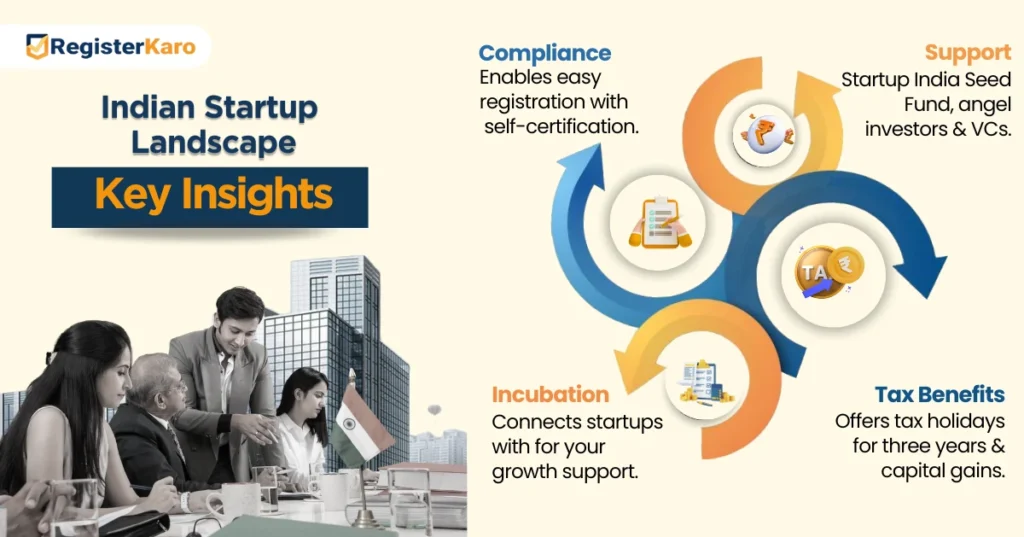
Introduction: Empowering Entrepreneurship Through Government Support
India’s startup ecosystem has witnessed remarkable growth in recent years, with government grants for startups in India playing a crucial role in nurturing innovative entrepreneurial ventures. The Indian government has recognized the immense potential of startups and has developed multiple government grants for small business startup in India to support emerging entrepreneurs.
In this comprehensive guide, we’ll explore the diverse landscape of government grants in India for startups, providing aspiring entrepreneurs with valuable insights into funding opportunities that can transform their business dreams into reality.
The Startup Ecosystem in India: A Government-Backed Innovation Hub
The Indian government has created a robust support system for startups, understanding that these innovative enterprises are the backbone of economic growth and technological advancement. Government grants for startups in India have become a critical mechanism for supporting early-stage businesses across various sectors.
Key Government Initiatives for Startup Funding
The Startup India program stands as a flagship initiative designed to foster innovation and entrepreneurship. This comprehensive government grant for small business startups in India provides:
1. Startup India Initiative
The Startup India Initiative is a flagship program launched by the Government of India aimed at nurturing the startup ecosystem in the country. It offers a variety of benefits and support to entrepreneurs, helping them turn their innovative ideas into successful businesses. Here’s a breakdown of the key components of this government initiative:
Key Features of Startup India Initiative:
- Financial Support Through Various Funding Mechanisms
Startup India offers various funding options, including the Startup India Seed Fund for early-stage startups, along with support from angel investors and venture capitalists. - Tax Benefits for Eligible Startups
Eligible startups receive tax holidays for the first three years, reducing their tax burden significantly, along with capital gains tax exemptions for investors. - Simplified Compliance Processes
The initiative streamlines business registration and compliance with a self-certification mechanism for labor and environmental laws, making the process smoother. - Networking and Mentorship Opportunities
Startup India connects entrepreneurs with investors, mentors, and industry experts, providing valuable guidance and networking opportunities through events like Startup Fests. - Incubation Support
The initiative encourages the development of incubators and accelerators that offer resources like mentorship, office space, and funding to help startups with growth and strategy.
By leveraging these benefits, entrepreneurs can access the resources, guidance, and funding they need to bring their ideas to life, scale their ventures, and contribute to the country’s economic growth.
The Startup India program represents a vital step toward strengthening the entrepreneurial ecosystem in India, offering both financial and non-financial support to ensure startups can thrive.

2. Pradhan Mantri MUDRA Yojana (Mudra Loan)
The Pradhan Mantri MUDRA Yojana (Mudra Loan) is a government initiative aimed at providing financial assistance to enterprises, especially in the informal sector. It helps businesses obtain funding for equipment, expansion, and working capital needs.
The scheme categorizes support into three segments based on the size and needs of the businesses, ensuring accessibility for various micro and small enterprises.
Key Categories of Mudra Loan:
- Shishu (Up to ₹50,000)
Targeted at early-stage businesses, the Shishu loan provides up to ₹50,000 for setting up small operations or purchasing basic equipment. It is ideal for street vendors, small shop owners, and micro-manufacturers, with minimal documentation and no collateral required. - Kishore (₹50,000 to ₹5 lakh)
Designed for growing businesses, the Kishore loan ranges from ₹50,000 to ₹5 lakh, catering to those needing working capital or equipment to expand. Suitable for various industries, it allows entrepreneurs to enhance their production and market reach, with a straightforward application process. - Tarun (₹5 lakh to ₹10 lakh)
The Tarun loan is for established small businesses seeking ₹5 lakh to ₹10 lakh for scaling up, introducing new products, or upgrading infrastructure. While requiring more detailed documentation, it remains accessible for businesses with consistent revenue streams.
Key Features of the Mudra Loan Scheme:
- No Collateral Requirement:
One of the most significant advantages of the Mudra Loan scheme is that it does not require any collateral. This makes it an attractive option for small and micro businesses that do not have assets to pledge as security for a loan. - Subsidized Interest Rates:
The Mudra Loan scheme offers competitive interest rates, often lower than those provided by traditional lenders. This helps reduce the financial burden on businesses and ensures more affordable access to credit. - Flexible Repayment Terms:
Mudra loans come with flexible repayment terms, allowing businesses to repay the loan in monthly or quarterly installments. The repayment schedule is designed to accommodate the cash flow patterns of small businesses, ensuring they can make payments without putting undue strain on their finances. - Quick and Easy Process:
The application process for Mudra loans is relatively simple and can often be completed online. Businesses can apply for loans through various public and private sector banks, micro-finance institutions, and non-banking financial companies (NBFCs). This simplified process ensures quick access to funds. - Financial Inclusion:
The Mudra Loan scheme is a key driver of financial inclusion in India. It provides small and micro businesses, particularly those in rural and semi-urban areas, access to formal financial services. This helps businesses move away from informal lenders who charge exorbitant interest rates, thus promoting fair lending practices.
Eligibility for Mudra Loans:
Eligibility for a Mudra loan depends on several factors, including the business type, annual turnover, and purpose of the loan. In general, the following businesses are eligible to apply for Mudra Loans:
- Micro and small businesses, including startups, manufacturers, traders, and service providers.
- Entrepreneurs in both rural and urban areas with a viable business plan and a need for working capital or business expansion.
- The loan applicant should not have any outstanding debts or bad credit history that would pose a financial risk to the lender.
Importance of the Mudra Loan Scheme:
The Mudra Loan scheme is crucial for empowering small businesses in India by providing accessible and affordable credit to micro and small enterprises. If you’re a small business owner or aspiring entrepreneur seeking financial help, consider the Mudra Loan scheme. RegisterKaro can assist you with the application process to help you secure the funding needed to grow your business and achieve your dreams.
3. Prime Minister’s Employment Generation Programme (PMEGP)
The Prime Minister’s Employment Generation Programme (PMEGP) is a government scheme aimed at generating sustainable self-employment opportunities, particularly for individuals looking to start micro-enterprises. This initiative encourages entrepreneurship and supports both manufacturing and service sector startups by providing financial assistance. The scheme is designed to foster economic growth at the grassroots level, especially in rural and semi-urban areas.
Key Features of PMEGP:
- Financial Assistance for Micro-Enterprises:
PMEGP offers funding to individuals and groups starting micro-enterprises, providing essential capital for startup costs. - Support for Both Manufacturing and Service Sector Startups:
The scheme supports both manufacturing and service businesses, ensuring that entrepreneurs have the resources they need to succeed. - Subsidies Ranging from 25% to 35% of Project Cost:
PMEGP provides subsidies ranging from 25% to 35% of the project cost based on location and applicant category, reducing the loan burden for entrepreneurs.
By offering financial support and reducing initial costs, PMEGP plays a critical role in promoting self-employment and helping new businesses get started with fewer barriers.
RegisterKaro: Your Partner in Securing Government Funding
RegisterKaro offers specialized assistance to entrepreneurs navigating the complex landscape of government grants for startups in India. Our expert team provides:
- Comprehensive application support: We provide thorough assistance throughout the entire application process, ensuring that all requirements are met and questions are answered to help you succeed.
- Documentation preparation: Our team is skilled in preparing and organizing all necessary documentation, making sure that everything is accurate, complete, and tailored to meet specific guidelines.
- Personalized guidance: We offer tailored advice and strategies that align with your unique goals and needs, helping you navigate the application landscape effectively.
- Ongoing consultation: Ongoing consultation involves a continuous and collaborative process where individuals or groups engage in regular discussions and exchanges of ideas to address specific issues or challenges.
Frequently Asked Questions
Government grants for startups in India are financial aids provided by the government to help new businesses grow without taking equity or repayment burdens.




